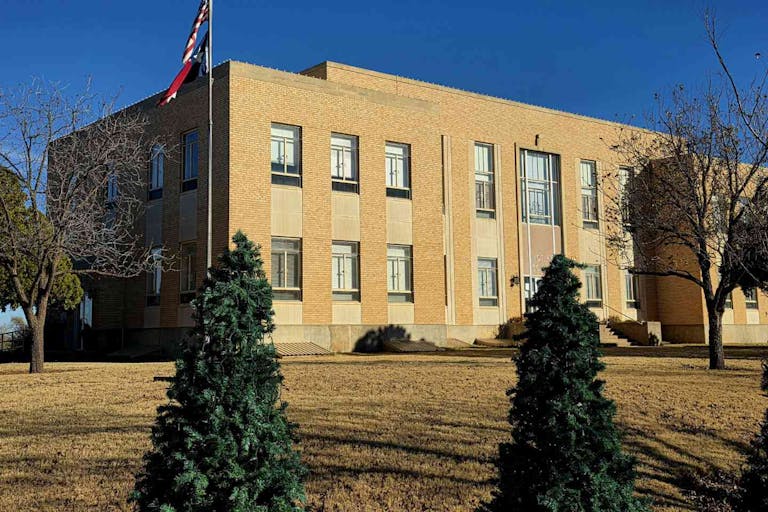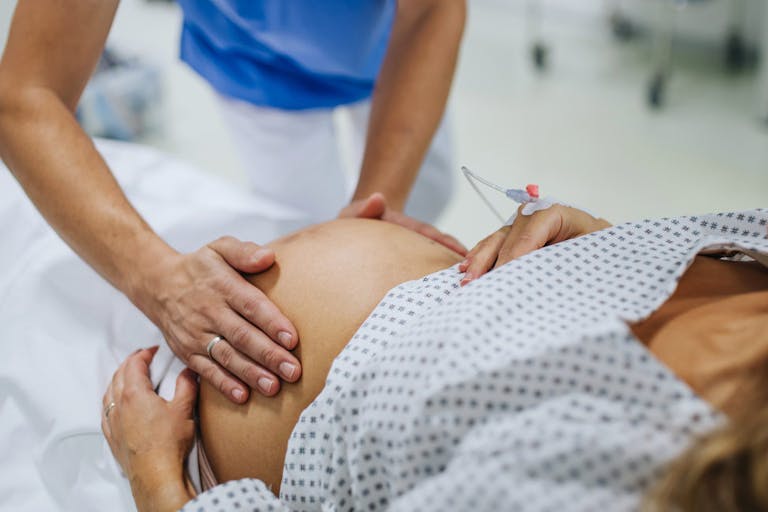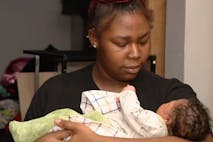
13th Texas county outlaws abortion and use of roads for ‘abortion trafficking’
Mark Lee Dickson
·
Human Interest·By Isabella Childs
Doctors perform life-saving procedure on ‘miracle baby’ just before her birth
A UK couple is thanking a team of medical professionals who saved their baby girl by performing an operation on her while she was still in her mother’s womb.
Eleanor Brannigan and her partner Adam Moseley were expecting their first child, a baby girl they named Eabha. A scan at 27 weeks showed fluid buildup around Eabha’s lungs and elsewhere within her body, and she needed treatment to prevent potential heart failure.
Nottingham University Hospitals (NUH) Obstetric and Fetal Medicine Consultant, Dr. Magdalena Fiolna, met with the couple, offered them the scans, and advised them on a treatment plan.
The couple faced several treatment decisions after learning their daughter’s diagnosis. Dr. Fiolna explained their options:
“to monitor, watch, and wait,” which would likely lead “to more complicated swelling, called fetal hydrops”
to perform an early delivery, which could result in preterm delivery complications
to drain the fluid using a needle (a temporary treatment which would have to be repeated multiple times)
“to insert a series of shunts to permanently drain the fluid, with the latter only being able to be carried out by specialists in large Fetal Medicine Centres, such as London or Birmingham”
Dr. Fiolna connected the family with the Fetal Medicine Research Institute and Professor Nicolaides, “who advised the shunt insertion to reverse the fluid accumulation. He offered an urgent appointment. Dr Fiolna then travelled with the family to London to meet with the team of specialists, who agreed to carry out the procedure to insert the shunts to help drain the fluid,” according to NUH.
After the shunts were inserted, Dr. Fiolna monitored the baby weekly. The shunts stopped working after a few weeks, which commonly happens. The couple chose ongoing monitoring for their baby.
Brannigan’s water broke while Fiolna was at a friend’s wedding, but the doctor was able to take a call from the staff caring for Brannigan and explain to the team what to do with the shunts if an emergency delivery was necessary. Fiolna used the moment as a teaching opportunity for her colleagues.
“These shunts are uncommon, and I wanted to empower my colleagues so that they knew exactly what to do,” Fiolna said. She continued to go above and beyond in her care for the mother and her sick preborn baby.
Article continues below
Dear Reader,
Have you ever wanted to share the miracle of human development with little ones? Live Action is proud to present the "Baby Olivia" board book, which presents the content of Live Action's "Baby Olivia" fetal development video in a fun, new format. It's perfect for helping little minds understand the complex and beautiful process of human development in the womb.
Receive our brand new Baby Olivia board book when you give a one-time gift of $30 or more (or begin a new monthly gift of $15 or more).
“I went to see Eleanor the next day to reassure her and to make a management plan. The day after, I was off but came in to scan her,” recalled Fiolna. She determined that Baby Eabha needed to be delivered and decided with her colleague that they were going to operate on her, draining the fluid from her lungs, before delivering her via C-section.
Fiolna explained that this would be beneficial. “This way, she could take her first breaths like any other baby to expand her lungs,” she said.
Fiolna and her colleagues also decided to delay clamping the baby’s umbilical cord, which she said would “allow more time for [Eabha’s] assessment by the neonatal doctors and nurses to plan more permanent drainage of fluid after birth.”
Baby Eabha was born at 31 weeks, and thanks to her medical team’s intervention, was much better after birth than she would otherwise have been and was able to go home with her parents in good health after 12 weeks in the NICU.
“We will be eternally grateful for all the help and support of Dr Fiolna and the teams that helped to save and look after Eabha,” Brannigan said. “Had we not met Dr Fiolna that day when we came in to get checked out, then the outcome may have been so very different…. Thank you to everyone for looking after us and for going above and beyond for our family. Eabha will always be our special miracle baby. She is a little fighter and we are just so grateful that she is here with us.”
“She is a miracle baby and if we had not intervened, she might not be here with her family now,” added Dr. Fiolna. “I am so very pleased that we were able to help and that Eabha is now at home and doing really well.”
Follow Live Action News on Facebook and Instagram for more pro-life news.
Live Action News is pro-life news and commentary from a pro-life perspective.
Contact editor@liveaction.org for questions, corrections, or if you are seeking permission to reprint any Live Action News content.
Guest Articles: To submit a guest article to Live Action News, email editor@liveaction.org with an attached Word document of 800-1000 words. Please also attach any photos relevant to your submission if applicable. If your submission is accepted for publication, you will be notified within three weeks. Guest articles are not compensated (see our Open License Agreement). Thank you for your interest in Live Action News!

Mark Lee Dickson
·
Human Interest
Nancy Flanders
·
Pop Culture
Cassy Cooke
·
Human Interest
Cassy Cooke
·
Human Interest
Anne Marie Williams, RN, BSN
·
Human Interest
Bridget Sielicki
·
Abortion Pill
Isabella Childs
·
Human Interest
Isabella Childs
·
Politics
Isabella Childs
·
Human Interest
Isabella Childs
·
Human Interest
Isabella Childs
·